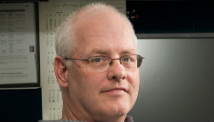MOSCOW (Reuters) - Russia will host Syria peace envoy Lakhdar Brahimi this week after Syrian officials held talks in Moscow on Thursday as part of a diplomatic drive to try to agree a plan to end the 21-month-old conflict, Russia's foreign ministry said.
Talks have moved to Moscow, a long-time Syria ally, after a flurry of meetings Brahimi held in Damascus this week, but the international envoy has disclosed little about his negotiations.
Brahimi, who saw Syrian President Bashar al-Assad on Monday and is planning to hold a series of meetings with Syrian officials and dissidents this week, is trying to broker a peaceful transfer of power.
More than 44,000 Syrians have been killed in a revolt against four decades of Assad family rule, a conflict that began with peaceful protests in March last year, but which has descended into civil war.
Past peace efforts have floundered, with world powers divided over what has become an increasingly sectarian struggle between mostly Sunni Muslim rebels and Assad's security forces, drawn primarily from his Shi'ite-rooted Alawite minority.
Syrian Deputy Foreign Minister Faisal Makdad and an aide held talks for less than two hours on Thursday with Foreign Minister Sergei Lavrov and Mikhail Bogdanov, the Kremlin's envoy for Middle East affairs, but declined to disclose details of their visit.
Syrian and Lebanese sources said Makdad had been sent to Moscow to discuss the details of a peace plan proposed by Brahimi.
Foreign Ministry spokesman Alexander Lukashevich played down the idea that a specific new proposal was on the table in Moscow talks, at least one agreed by Moscow and Washington.
Asked about rumors of a Russian-American plan to resolve the conflict, he said: "There has not been and is no such plan."
'TRYING TO FEEL A WAY OUT'
"In our talks with Mr. Brahimi and with our American colleagues, we are trying to feel a way out of this situation on the basis of our common plan of action that was agreed in Geneva in June," Lukashevich told reporters at a weekly briefing.
Setting the scene for a planned Russian meeting with Brahimi on Saturday, he said, "We plan to discuss a range of issues linked to a political and diplomatic settlement in Syria, including Brahimi's efforts aimed at ending the violence and the launch of a comprehensive national dialogue."
World powers believe Russia, which has given Assad military and diplomatic aid to help him weather the uprising, has the ear of Syria's government and must be a key player in peace talks.
Moscow has tried to distance itself from Assad in recent months and has said it is not propping him up, but Lukashevich reiterated its stance that Assad's exit from power could not be a precondition for negotiations.
Setting such a condition, he said, would violate the terms of an agreement reached by world powers in Geneva on June 30 that called for a transitional government in Syria.
Lukashevich said Russia continued to believe there was "no alternative" to the Geneva Declaration and repeated accusations that the United States has reneged on it.
"Our American colleagues and some others ... have turned sharply from this position, by 180 degrees, supporting the opposition and conducting no dialogue with the government - putting the opposition in the mood for no dialogue with the authorities but for overthrowing the authorities," he said.
"The biggest disagreement ... is that one side thinks Assad should leave at the start of the process - that is the U.S. position, and the other thinks his departure should be a result of the process - that would be the Russian position," Dmitry Trenin, an analyst at the Moscow Carnegie Center, told Reuters.
But Trenin said battlefield gains made by the Syrian rebels were narrowing the gap between Moscow and Washington.
On Saturday, Lavrov said that neither side would win Syria's civil war and that Assad would not quit even if Russia or China told him to. Bogdanov had earlier acknowledged that Syrian rebels might win.
Lavrov has said this month that Russia had no intention of offering Assad asylum and would not act as messenger for other nations seeking his exit.
(Additional reporting by Nastassia Astrasheuskaya; Writing by Alissa de Carbonnel; Editing by Andrew Osborn)


